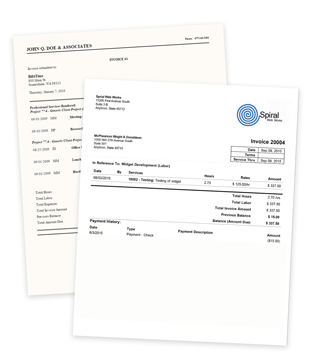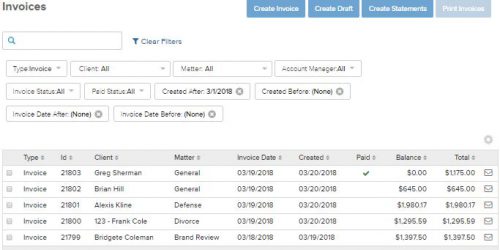

Truthfully, no one goes to law school so they can spend their days creating bills or chasing down late payments. Lawyers are spending too much time on non-billable hours/non-lawyer activities. There’s plenty of room for bottlenecks and wasted costs. Unfortunately, this billing process leaves much to be desired. The accounting team sends follow-up reminders regarding late payments.Clients pay via whatever payment methods the firm accepts.The firm creates a final version of the bill and sends it to the clients for payment.Attorneys add notes and adjust costs as needed and approve the bill.The firms put bills and expenses for each client and case in draft at the end of the month.The firm logs billable time and disbursement fees/expenses through the life of the case.

The firm brings on a new client and opens its case.Traditionally, the billing process looks something like this for most law firms: The traditional law firm billing process is overly time-consuming and resource-intensive, drawing lawyers’ valuable attention away from other pressing matters. The best legal software, like Clio’s legal billing app, offers payment solutions and integration partners to help law firms get paid as easily and efficiently as possible. That’s why firms are increasingly turning to legal payment software. Lawyers should spend their precious time on high-value client work-not chasing, processing, or managing their payments. The rest of their day goes towards various non-billable tasks, such as: In these circumstances, struggling to get paid quickly and on time is as frustrating as it is unfair.Īccording to the 2022 Legal Trends Report, lawyers record only 2.6 billable hours per day on average. Lawyers do vital work, often working around the clock to help achieve positive outcomes for their clients.


 0 kommentar(er)
0 kommentar(er)
